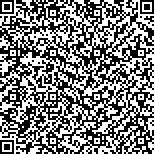| 摘要: |
| 研究了质量为148.88 g±17.29 g 和16.32 g±2.23g 两种规格的条纹锯■(Centropristis striata)鱼种对高温的耐受性及高温胁迫后恢复方式的适应。结果表明: 大规格鱼种的高温半致死温度为26.80℃,最适温度上限为20.38℃。小规格鱼种的高温半致死温度为29.26℃, 最适温度上限为25.11℃。依据实验鱼种耗氧率的恢复情况可以断定: 在暴露于高温半致死温度48 h 或72 h 条件下, 直接恢复方式略优于梯度恢复方式; 而暴露24 h 条件下, 两种恢复方式的作用无明显差异。高温半致死温度暴露下, 要避免条纹锯■达到半数死亡则积温不能超过(1 064.67±72.01)℃?h。 |
| 关键词: 条纹锯■(Centropristis striata) 高温半致死温度 最适温度 恢复方式 半致死积温 |
| DOI: |
| 分类号: |
| 基金项目:国家科技成果转化资金项目(2007GB2C600501) |
|
| The adaptability of black sea bass (Centropristis striata) to semi-lethal temperature and recovery mode from exposure to semi-lethal temperature |
|
|
| Abstract: |
| In this paper, two kinds of Centropristis striata (148.88 g±17.29 g and 16.32 g±2.23 g) were used to investigate the adaptability of black sea bass to semi-lethal temperature and the recovery mode from exposure to semi-lethal temperature. By the interpolation method, we got that the larger-sized fingerling’s semi-lethal temperature and the upper limit of optimum temperature were 26.80 ℃ and 20.38 ℃, respectively. And the smaller-sized fingerling’s semi-lethal temperature and the upper limit of optimum temperature were 29.26 ℃ and 25.11 ℃, respectively. By measuring the oxygen consumption rate (OCR), we found the direct mode was more propitious for fingerling’s recovery than gradient mode after continuous exposure to semi-lethal temperature for 48 h or 72 h. But both of the modes could make them recover successfully after being exposed for 24 h. In addition, the semi-lethal accumulated temperature should be less than 1064.67 ℃·h±72.01 ℃·h at semi-lethal temperature in order to exempt semi-lethal rate. |
| Key words: Centropristis striata semi-lethal temperature optimum temperature recovery mode semi-lethal accumulated temperature |
